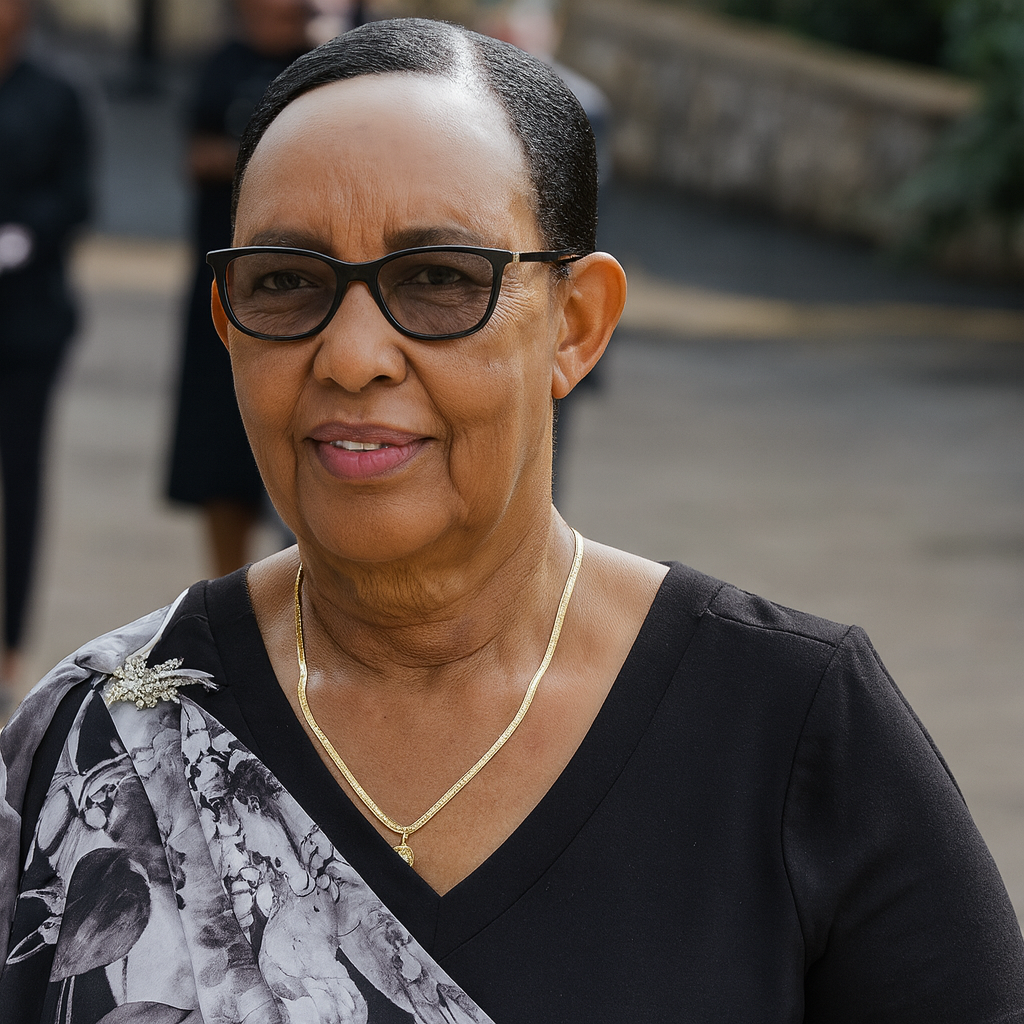
By Noël Kambanda, The New Times
The story of Tante Josephine Murebwayire is, in many ways, the story of Rwanda, a story of pain, courage, and extraordinary resilience. Her passing leaves a silence that words can hardly fill, but her life remains a shining example of strength and hope.
Josephine lived most of her life on Ndera hill, at a time when the area was dominated by powerful members of Juvenal Habyarimana’s genocidal government, including Gen. Déogratias Nsabimana, the Chief of Staff. For years, she and her family lived under fear and discrimination simply because they were Tutsi.
Even in church, where she sought comfort, humiliation followed her. During Sunday Mass, a priest, Deogratias Gakuba, who changed his name to Déogratias Tuyisenge, turned his sermon into an attack. He asked Josephine to stand up and told the congregation that “the RPF are like Josephine,” using her as an example of hate. She stood there, in discomfort, humiliated in front of her neighbours, but with the quiet dignity that would define her life.
When the Genocide against the Tutsi began, in April 1994, Josephine lost everything.
Her husband and all six of her children were killed. She survived by hiding, for weeks on Ndera hill, surrounded by death and silence. Later, she recalled hearing gunfire in the distance and thinking it was her end. When RPF soldiers finally arrived, she thought they were Interahamwe militia who had come to kill her too. Terrified, she asked them to shoot her instead of using a machete.
One soldier approached her and said gently, “We are Inkotanyi, not Interahamwe killers. Don’t worry, you have survived.”
Those words changed everything. From that day, Josephine often said she learned ubumuntu — humanity — from Inkotanyi.
After the genocide, while many survivors struggled in isolation, Josephine gathered a few widows who shared the same pain. They met under a tree at Sainte Famille Church — first five, then 10, and soon many more. There, they talked, cried, and slowly began to heal. From those small gatherings was born AVEGA-Agahozo, the association of widows of the genocide, which later became a strong voice for survivors across the country.
Josephine was one of the first genocide survivors to testify publicly about what happened to her family.
Only a few days after the genocide, she spoke on camera about the killing of her husband and children. Her testimony was broadcast in the early years of genocide commemoration, giving courage to many who were still afraid to speak. She later testified in genocide trials, always calm, honest, and brave.
To everyone who met her, Josephine was a mother. To young survivors, she offered guidance and encouragement. To widows, she was a mentor who reminded them that life after loss was still possible. To her community, she was a living example of faith. A devout Catholic, she attended Mass daily and prayed for peace not only for herself but for all who had suffered.
Those who knew her remember her smile and kindness. Despite all the suffering that she endured, Josephine was known for her joyful spirit. She laughed easily, listened deeply, and never stopped believing in people.
Now, after 31 long years apart, Josephine joins her husband and children, the family she loved and missed every single day.
Her journey is a reminder that resilience is not about forgetting pain, but about choosing to live with it and turn it into light for others.
Rest in peace, Tante Josephine Murebwayire.
Your story will never be forgotten. You showed us that even in the darkest times, love, and humanity, can survive.
